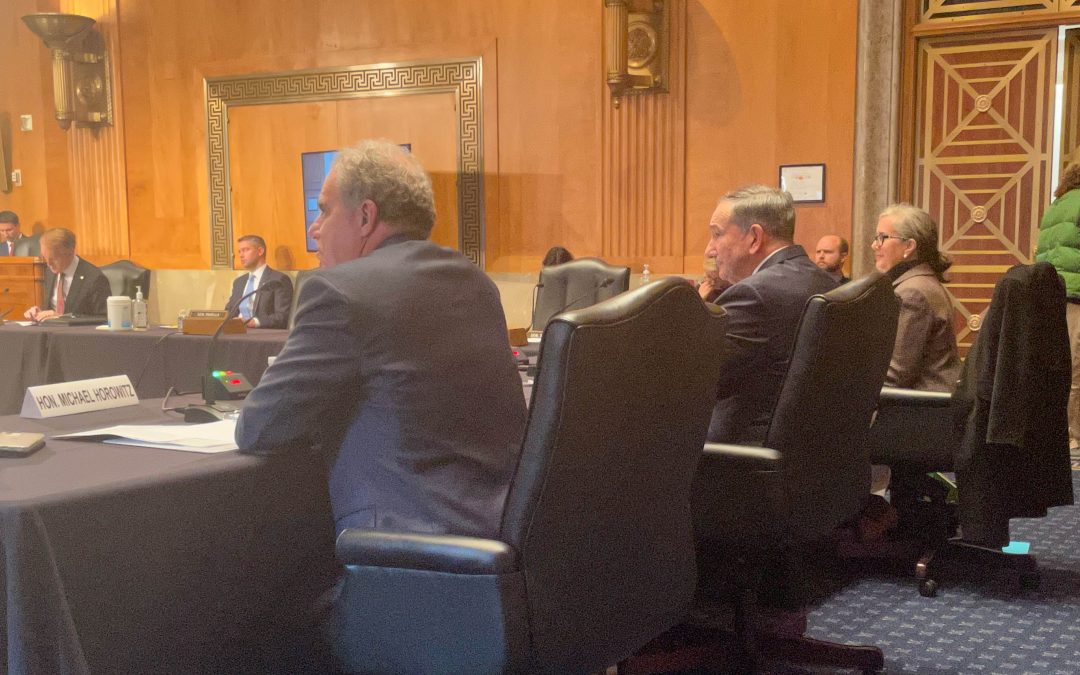WASHINGTON — In a rare moment of bipartisan support, Democrats and Republicans agreed with the Justice Department’s top watchdog about expanding the privileges of government oversight officials.
“I think it would be an extremely important change and helpful to us in a wide range of our work,” said Michael Horowitz, Inspector General for the Department of Justice (DOJ).
Inspectors general (IGs) are government officials responsible for investigating waste, fraud, abuse and mismanagement by their respective federal agencies.
Horowitz and other inspectors general spoke before the Senate Homeland Security and Governmental Affairs committee on Thursday morning to discuss a bill which would expand the independent, non-partisan work of inspectors general offices.
“All together our work in 2020 resulted in potential savings totaling approximately $53 billion — a $17 return on every dollar invested in IG oversight. For accomplishments like this to continue and expand, action is necessary,” said Allison Lerner.
Lerner is a federal IG herself, and the chair of the oversight board for all U.S. inspectors general offices.
Horowitz and his fellow IGs argued in favor of the Inspector General Independence and Empowerment Act of 2021, now being considered by the committee after passing the House in June. Chairman Gary Peters, D-Mich., and ranking member Rob Portman, R-Ohio, have offered amendments to broaden IG’s subpoena authority and reform the president’s abilities to nominate or remove these officials for political reasons.
Most IGs currently do not have the right to request subpoenas from employees who leave their agency ahead of an investigation.
“I can cite example after example in our high profile cases, but it happens very frequently in our not so high profile cases where individuals simply refuse to appear or, we’ve had occasions where people have resigned before a compelled interview precisely because they wanted to avoid speaking to us,” Horowitz said.
Another issue facing IGs — 12 inspectors general positions are currently vacant, some among critical government agencies including the State and Defense departments.
Former President Donald Trump fired or replaced five acting and permanent inspectors general within six weeks during the spring of 2020 for what were largely described as retaliatory motives.
More than nine months into his administration Biden has submitted eight IG nominations to the Senate for approval. While the positions remain vacant, acting officials perform the responsibilities of these watchdog roles.
“Inspectors general that are serving in an acting capacity often, not always, but often are less independent than their Senate confirmed counterparts because in some instances those acting IGs are in some ways rehearing for the role,” said Liz Hempowicz, the Director of Public Policy at the Project on Government Oversight.
“They would like to have the nomination, and so they have an incentive while they’re serving as acting IG to try and curry the favor of their agency head,” she added.
The President of the United States has the authority to appoint anyone they see fit for the IG role, or to oust them, so long as Congress is given 30 days notice.
The committee has yet to set a date for a vote on the IG Independence and Empowerment Act. If passed, it will mark the largest reform to investigators general offices since 2008.

